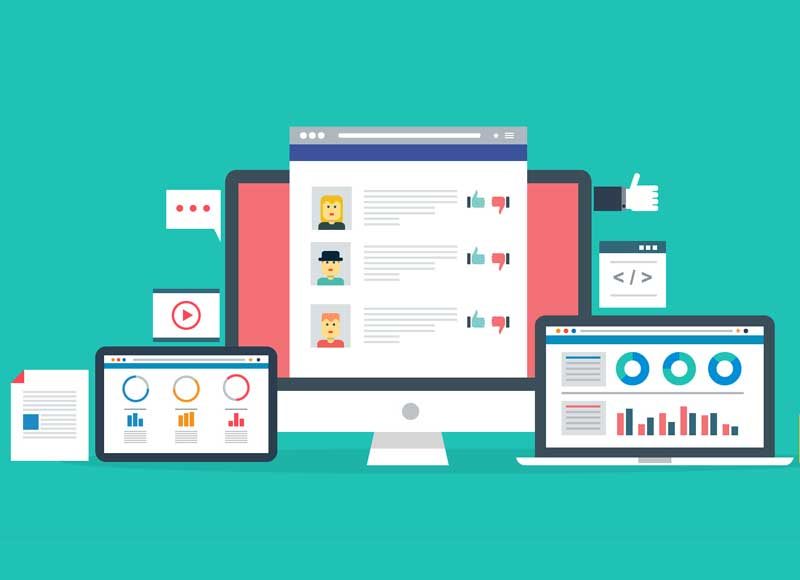The European Union has created laws that address hate speech, terrorism, child sexual abuse, and other issues generated as a result of online content circulation. And despite the UK no longer being part of the EU, companies willing to operate within the most significant global trading bloc would still have to adhere to the EU standards. As such, this regulation affects platforms operating on the internet regardless of their global location.
Various platforms on the web have uncovered, evacuated, and reported child sexual abuse materials (CSAM), and different providers have deployed different methods to address the issues. However, the EU believed that a more critical approach should be considered in solving the issues and should not be left alone to voluntary action alone.
The EU’s combined legislation with the European Court jurisprudence has made content filtering measures repeatedly used in an automated and preventive approach. However, deploying them in digital services raised concerns about giving room to human rights standards, often leading to allegations of executing a new form of digital censorship.
What Does Content Filtering Mean?
The practice of content filtering involves eliminating unregarded content from emails and online pages to promote perceived healthy content to online surfers. Certain content is not healthy for viewing for certain people. This could include content that promotes sexual abuse and other malicious acts. While maintaining relevant online content for the right audience, content filtering ensures a safe online environment.
Content filtering solutions, also known as web filters, are one of the requirements of cybersecurity compliance programs. It defines content patterns, including text strings and image patterns, which, when not in sync, the software identifies such content as objectionable and either blocks it or flags it. For instance, the content filtering strategy tracks and connections to inappropriate, risky, and offensive. In addition, many companies have content filtering regulations and use tools such as firewalls to block content that falls short of their requirement.
Some online platforms already detect, report, and put off online CSAM. However, some EU member states have decided to implement their legislation to fight sexual-related issues. Others are being generated due to insensitive content being distributed on the internet. The legislation to tackle online CSAM could truncate the EU’s picture of having a United Single Market.
There have been past attempts at content scanning. For instance, Apple once tried to scan owners’ devices for CSAM using client-side scanning (CSS). This helps in achieving CSAM filtering without violating end-to-end encryption. But the proposal was postponed indefinitely after it got a heated backlash.
- At the heart of the EU regulation, relevant information society services will need to implement measures such as
- To reduce the risks of services being misused for online child sexual abuse.
- Eliminate or deactivate access to child sexual abuse materials on their services.
- Identify and report online abuse towards kids.
- Relevant information society services are described in any of the provided contexts below:
- Online hosting service: this entails information storage furnished by and given at the request of one who receives such services.
- Interpersonal communication services: a service that provides direct interactive and interpersonal delivery of data through digital communications networks between a specific number of individuals where the individuals starting or being involved in the communication decide on the receivers, including those delivered as an ancillary feature linked within to another service.
- Software applications stores: services online working as intermediation concentrated on software applications as the intermediate service or product.
- Internet access services: Electronic communication services are provided publicly to the internet and interlink all end points of the internet regardless of the kind of terminal tools or technology harnessed.
The EU filtering regulation would pave the way for the EU center to create and maintain databases of online CSAM indicators. The database is being considered by information society services to promote regulatory compliance. Furthermore, the EU Center was positioned as a liaison to Europol. They filter reports of CSAM, which are unfounded before transferring the rest to Europol for additional investigation and analysis.
How the EU Content Filtering Works
Content filtering works differently for different organizations. The EU aims to sanitize the online space for content that can be regarded as worthy of being viewed or accessed. Content used to circulate sexual abuse and unhealthy messages or messages that can be harmful, whether to an individual or the state, are removed. Many platforms have found and reported content promoting sexual abuse, and the EU is deploying a more decisive approach to control and eliminate such content on the web.
Content filtering will remove knitting social networking platforms in line with organizational policy and harmful websites (cybersecurity) to ensure the workplace is void of distractions or activities that can truncate productivity. Employees engrossed in adult sites can engage in hostile work environments, even create room for sexual harassment, and download harmful online content that could lead to a high risk of malware transmission on computers.
Some content that deserves to be filtered includes hateful and violent content. They can compromise the safety of an organization’s work environment and lead to almost irredeemable damage to its corporate image, productivity, and efficiency.
Some Benefits of Content Filtering to Organizations
1. Prevention of Inappropriate Content and Malicious Access
Content filtering helps organizations keep their online space clean by removing unwanted content and blocking malicious sites while delivering good, appropriate, and relevant information.
2. Prevent Data Leakage
Monitoring and filtering what employees are engaged in on the internet can go a long way to save the company from potential data leakage occurrence. Confidential information. Company products, trade secrets, and other sensitive data could be tracked when accessing malicious online content.
3. Managing Company Brand Image
Employees posting inappropriate or confidential company content can cause damage to the overall brand image. Hence, internet traffic must be monitored within the organization to ensure that employees are not engaging in harmful practices.
Follow Technoroll for more!






